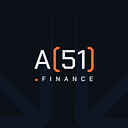Unipilot: Improved Tokenomics
Background
Unipilot has been live on Ethereum since November 2021, with v2 launching in April of this year to improve the protocol and to fix inefficiencies found with v1.
Now that Unipilot v2 has proven itself as a successful liquidity optimization protocol offering on average 3x higher returns for Uniswap v3 liquidity, we are at a stage where we can focus on improving $PILOT tokenomics and the usage of the revenues earned by the protocol.
The Existing Setup
Under the existing system, all fees earned by the protocol are sent to the index fund, and $PILOT holders can burn their $PILOT tokens to receive an equivalent portion of the contents of the fund.
This concept may be great in the long run, but has downsides in the short and medium term, as until the value of the index fund surpasses that of the $PILOT market cap, it does not serve this purpose and there is no incentive to burn $PILOT. In the meantime, these assets in the index fund remain idle and unproductive.
A New Approach
Our Snapshot proposal received the backing of the community so we are ready to introduce new $PILOT tokenomics which meet the needs of the protocol and the community in both the near-term and the medium/long-term.
Under the new system, instead of directing all protocol revenue to the index fund where it is idle, revenue will be used to (1) pay for staking rewards, (2) cover protocol expenses and (3) create a productive treasury which generates additional revenue for the protocol. We will also (4) end farming rewards.
1. Staking Rewards
- Beginning 25th June, users will be able to stake their $PILOT tokens on the Unipilot dApp to earn a share of protocol revenues. Initially, 40% of Treasury revenues will be distributed to stakers, though this percentage could change in the future.
- Rewards will be distributed with every block and paid in $ETH, as chosen by the community. Stakers will be able to collect their $ETH rewards at any time, and remain in full control of their $PILOT, with the ability to unstake at any time without penalty. Find out more in our staking article.
2. Protocol Expenses
- One of the key goals of our tokenomics improvement initiative is to control the emission of new $PILOT tokens from our vesting schedule, to the point where, eventually, no new tokens are released into circulating supply.
- Instead, we will fund Unipilot operations from the revenues generated by the protocol. This includes team salaries, marketing and all other expenses linked to running a protocol.
3. Productive Treasury
- Assets in the index fund, which is currently worth $270,000, sit idle. If we instead use these assets to add liquidity on Unipilot, they would become incredibly productive, as not only are the returns high, but the protocol would earn 100% of fees earned vs. only 20% of fees earned from our users’ liquidity. As such, adding for example $200,000 of Unipilot-owned liquidity would be equivalent to TVL rising by $1,000,000!
- This could grow the treasury in an exponential manner. For example, with an APR of 100%, $200,000 would turn into $400,000 after one year and $800,000 after two years, ceteris paribus. Increasing returns for the treasury also means increased rewards for stakers, too, as they earn a share of protocol revenue. This aspect of the new tokenomics also passed its own Snapshot vote, and as such we will be moving index fund assets into an active liquidity position in the coming days as there is a 3-day timelock.
4. End to Farming
- Farming has been a feature on Unipilot since launch, designed to incentivise the provision of liquidity. However, with most of the Active pairs providing triple-digit returns to LPs via earned liquidity fees, the extra returns from farming are not a strong additional incentive and lead to increased $PILOT inflation and sell pressure. This in turn harms those who decide to buy and hold $PILOT.
- By ending farming, as decided by the community, we can significantly reduce $PILOT inflation. Farming rewards will be discontinued at the end of June.
The Future’s Bright
With these changes to tokenomics, the protocol becomes truly sustainable and self-sufficient, with reduced and eventually eliminated $PILOT inflation, increased protocol revenues and strong utility for the $PILOT token. Note that the previously announced $PILOT burn program will continue to run, eventually removing 78% of $PILOT tokens from supply. Tell your friends about Unipilot today!
